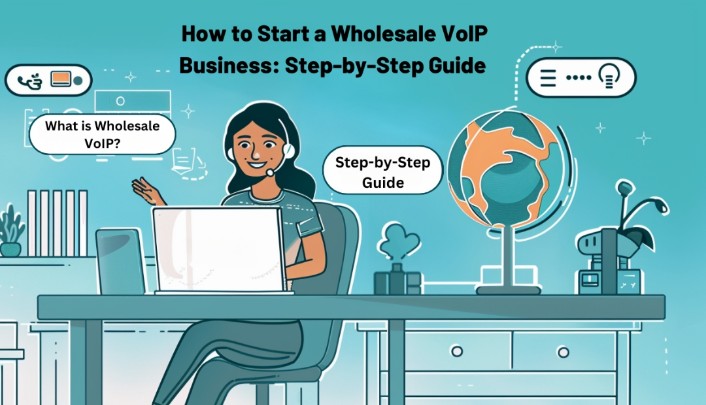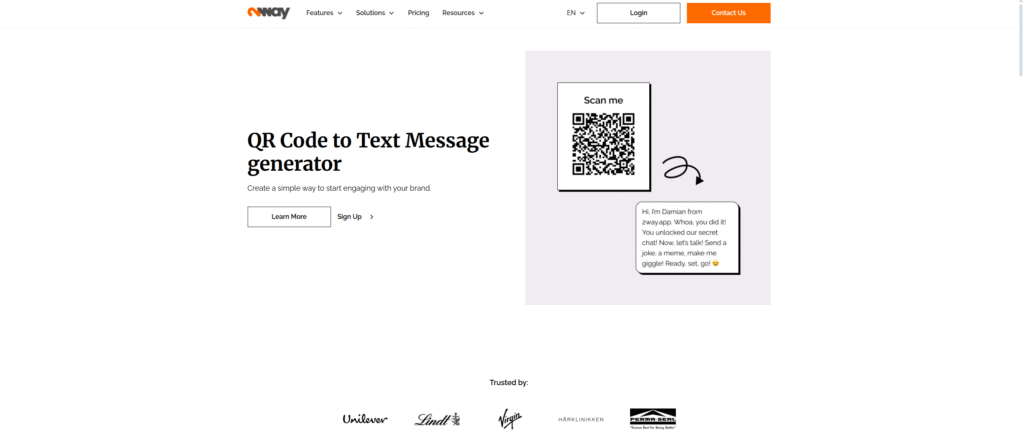Introduction
The digital revolution has transformed business communication, and Wholesale VoIP (Voice over Internet Protocol) has emerged as a cost-effective, scalable, and global solution for voice calls. If you’re looking to enter the telecom industry, starting a Wholesale VoIP business can be a lucrative venture. This guide walks you through each step, offering practical insights and mentioning potential partners like MyCountryMobile and CallMama to help you build a successful Wholesale VoIP business.
What is Wholesale VoIP?
Wholesale VoIP allows businesses to buy large volumes of voice traffic and sell them to telecom operators, resellers, or enterprises. Unlike retail VoIP that serves individual users, Wholesale VoIP focuses on bulk voice call termination, offering competitive rates and a wide reach. It leverages internet-based telephony to efficiently route and terminate calls across borders, bypassing traditional, costly phone networks.
Step-by-Step Guide to Starting a Wholesale VoIP Business
1. Understand the VoIP Industry and Market Demand
Start by understanding how the VoIP industry works, the potential customer base, and the market’s future. Research the trends and services provided by industry leaders like MyCountryMobile and CallMama, which specialize in Wholesale VoIP services. Identify your competitors, evaluate demand, and learn about the infrastructure required to run a VoIP business.
- Tip: Dive into forums, telecom groups, and market analysis reports to stay updated on the industry’s changing needs and demands.
2. Define Your Niche and Target Audience
The VoIP market covers various segments. To stand out, define your niche and identify your target audience, which could include call centers, telecom resellers, or international businesses that need high-quality voice traffic.
- Possible Niche Examples:
- Call Centers needing bulk voice traffic for customer service.
- Telecom Resellers looking to expand their service offerings.
- Global Enterprises wanting seamless communication across regions.
Establishing a focused niche will help you tailor your marketing strategies and services to meet their specific needs.
3. Choose a Reliable VoIP Platform and Technology
Your VoIP platform is the foundation of your business. It should support essential functions like billing, call routing, security, and monitoring. Both MyCountryMobile and CallMama offer robust technology platforms that provide scalable and reliable VoIP services.
- Important Features to Look For:
- Scalable Infrastructure: Ensure the platform can handle increasing voice traffic as your business grows.
- Comprehensive Billing Tools: A billing system that supports multi-currency, real-time invoicing, and account management.
- Quality Monitoring & Reporting: Real-time analytics to maintain high call quality and efficient traffic routing.
- SIP Trunking & Protocol Compatibility: Support for SIP (Session Initiation Protocol) trunks and inter-network compatibility.
VoIP systems like Asterisk, FreeSWITCH, or commercial platforms such as MycountryMobile are good choices. Make sure to choose a solution that aligns with your business model and is easy to integrate with other tools.
4. Establish Partnerships with VoIP Carriers
To start a Wholesale VoIP business, you need partnerships with Tier-1 or Tier-2 VoIP carriers for call routing. Consider working with providers like MyCountryMobile or CallMama, who have established global networks and reliable routes.
- Partner Checklist:
- Global Coverage: The ability to route calls efficiently to the regions you plan to target.
- Pricing and Quality: Find partners offering competitive bulk pricing and a consistent call quality guarantee.
- Support and SLAs: Ensure the carrier provides strong Service Level Agreements (SLAs) and reliable customer support.
Before locking in partnerships, test their services to ensure reliable connectivity, latency, and voice quality.
5. Set Up a Comprehensive Billing System
An efficient billing system is crucial for managing accounts, invoicing clients, tracking usage, and monitoring payments.
- Billing System Features:
- Automated Invoicing: Real-time billing based on call duration, destination, and rates.
- Flexible Payment Models: Support both prepaid and postpaid options for your customers.
- Rate Management: Tools for setting different call rates based on destinations, peak hours, and call volumes.
- Secure Payment Processing: An integrated payment gateway for secure transactions.
Choosing a billing system that integrates seamlessly with your VoIP platform helps you streamline operations and maintain accurate customer records.
6. Offer Reliable Support and Customer Service
Reliable customer support is essential for any Wholesale VoIP business. Whether it’s technical issues or general inquiries, providing quick and efficient support helps retain clients and build your brand’s credibility.
- Types of Support:
- 24/7 Technical Assistance: Round-the-clock availability to assist with technical issues.
- Multi-Channel Support: Provide support via phone, email, chat, and an online portal.
- Knowledge Base & Self-Service: Create a resource center with FAQs, guides, and tutorials to empower your clients to resolve common issues.
Having a dedicated support team will not only enhance customer satisfaction but will also help you stand out in a competitive market.
7. Develop a Competitive Pricing Strategy
Your pricing model will significantly impact your business’s success. Carefully consider your costs, competition, and target market when setting your rates.
- Pricing Strategies to Consider:
- Per-Minute Billing: Charge based on call duration, with different rates for local, international, and premium routes.
- Subscription-Based Pricing: Offer a fixed monthly rate for unlimited calling to specific regions or countries.
- Tiered Pricing Packages: Provide different packages based on call volume and destinations to appeal to various customer segments.
Experiment with different pricing models and analyze their impact on profitability and customer acquisition.
8. Comply with Legal and Regulatory Requirements
Telecom regulations vary across countries, and starting a Wholesale VoIP business requires you to comply with both local and international laws.
- Regulatory Considerations:
- Licensing: Verify whether you need a telecom license to provide VoIP services in your target regions.
- Data Privacy: Adhere to data protection and privacy regulations like GDPR.
- Emergency Services Compliance: Make sure you understand the requirements for providing access to emergency calling services (e.g., 911).
Consult with a telecom lawyer to ensure your business is legally compliant, protecting you from penalties and ensuring smooth operations.
9. Market Your VoIP Business
Marketing is key to attracting customers and growing your Wholesale VoIP business. Both MyCountryMobile and CallMama employ multiple marketing channels to reach potential clients, and you should do the same.
- Effective Marketing Channels:
- Content Marketing: Share blogs, videos, and whitepapers to educate your audience about the benefits of Wholesale VoIP.
- SEO & Paid Advertising: Optimize your website for search engines and run targeted PPC campaigns to attract leads.
- Networking & Partnerships: Attend telecom conferences, webinars, and networking events to connect with potential clients and partners.
10. Monitor Performance and Scale Your Business
Once you’ve set up your business, track your KPIs (Key Performance Indicators) to measure success. Regularly monitor call quality, customer satisfaction, revenue growth, and operational costs.
- Scaling Your Business:
- Expand Geographic Reach: Increase your VoIP services to cover additional countries and regions.
- Add Value-Added Services: Offer additional services like DID numbers, SMS services, or fax over IP.
- Optimize Operational Costs: Regularly negotiate rates with your VoIP partners and improve processes to maximize efficiency.
Continuously improve your services, adapt to market demands, and look for opportunities to grow and diversify your business offerings.
Conclusion
Starting a Wholesale VoIP business can be highly profitable if done right. By thoroughly understanding the market, selecting reliable technology, forming strategic partnerships with carriers like MyCountryMobile and CallMama, and focusing on customer satisfaction, you can build a strong and successful VoIP business. Proper planning, compliance, and a focus on quality and support are key elements to thrive in the competitive VoIP industry.
Keep refining your strategy, optimize your operations, and stay informed about the latest trends to maintain your competitive edge in the rapidly evolving telecom landscape.
FAQs
Q.1: How much initial investment is required to start a VoIP business?
A: The initial investment varies based on factors like platform costs, infrastructure setup, partnerships, and marketing. On average, a basic setup may require between $10,000 and $50,000, but this can be higher based on the scale and scope of your services.
Q.2: Can I start a VoIP business without technical expertise?
A: While having a technical background is advantageous, you can partner with technology providers like MyCountryMobile or CallMama to handle the technical aspects. However, understanding the basics of VoIP, network infrastructure, and business operations is important for making informed decisions.
Q.3: What’s the difference between Tier-1 and Tier-2 carriers?
A: Tier-1 carriers own the infrastructure and have a direct global reach, offering higher quality but often at a premium price. Tier-2 carriers lease infrastructure from Tier-1 providers and typically offer more cost-effective solutions. Both types can be suitable for a VoIP business, depending on your quality and cost needs.
Q.4: Is it possible to resell VoIP services without owning the infrastructure?
A: Yes, it’s possible to resell VoIP services as a reseller without owning any infrastructure. You can partner with a Wholesale VoIP provider, purchase voice traffic in bulk, and then offer the service to your customers under your brand.
Q.5: How can I maintain call quality for international traffic?
A: To ensure high call quality for international routes, work with reliable providers that offer global reach, such as MyCountryMobile and CallMama. Monitor call performance in real-time, use direct routes, and implement Quality of Service (QoS) policies to prioritize voice traffic.
Q.6: What kind of support should I expect from a Wholesale VoIP provider?
A: A Wholesale VoIP provider should offer 24/7 technical support, real-time monitoring tools, a management portal for usage and billing, and assistance with setup and integration. Make sure the provider has a quick response time and knowledgeable staff to help with any issues.






